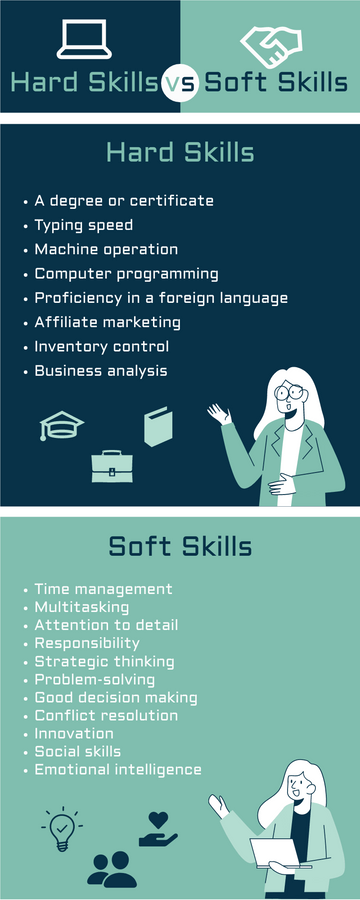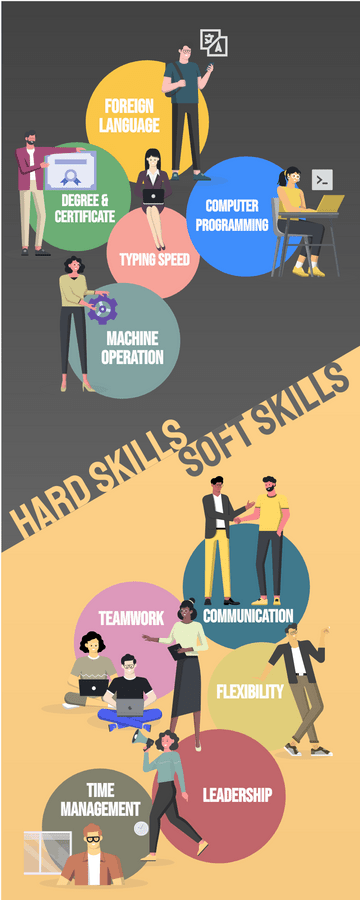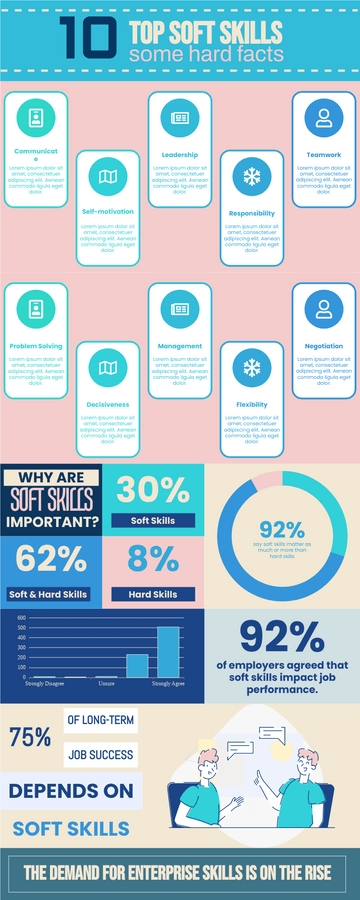What basic soft skills do you need and how do they help you move forward
“Soft skills” refers to skills that are not directly related to a particular job. They are general characteristics that help people thrive in work, school or social Settings, regardless of their experience, role or discipline. Sometimes they are referred to as transferable skills or interpersonal skills.
Why Are Soft Skills So Important?
Almost every interaction with someone requires some level of soft skills. In the company, you might be:
- Negotiating to win a new contract,
- Presenting ideas to other students in the class,
- Scheduling time to make sure you finish tasks on time, and so on.
We use soft skills every day, so developing them makes you more likely to succeed in whatever you do. In addition, research show that soft skills now play a critical role in helping you stand out and advance your career. Many universities and colleges have begun to incorporate students’ soft skills as an integral part of their curriculum.
Hard Skills vs Soft Skills
Hard skills are the technical skills and knowledge that you need to do a job. These hard skills can vary a lot depending on your field. For example, if you are a programmer, you may need to master a language (such as JavaScript), develop your logic skills, and learn to think like a computer.
Soft skills are skills that are useful in any job. Since most jobs involve dealing with people, skills such as patience, listening, and enthusiasm will serve you well. Other soft skills, such as dedication, organization, and a strong work ethic, will also make your hard skills shine.




